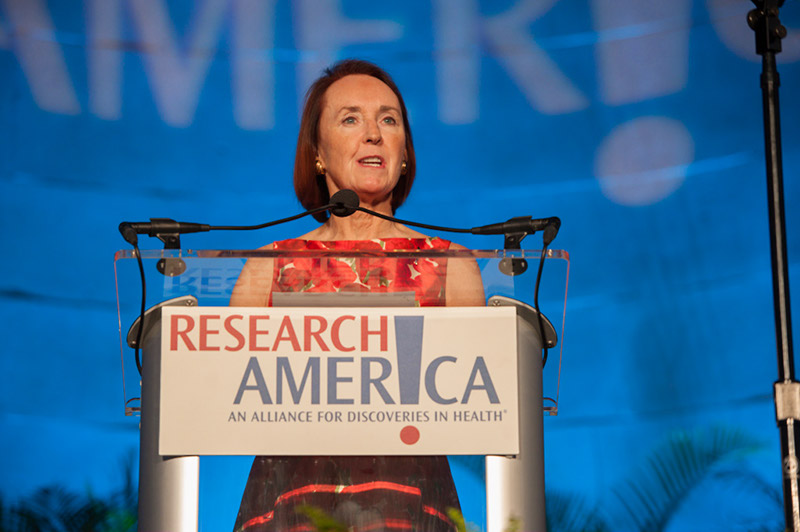No Time to Stand on the Sidelines

 Dear Research Advocate:
Dear Research Advocate:
Last weekend, many of us awoke to reports that CDC officials were barred from using several words and phrases, among them “science-based,” “evidence-based” and “diversity.” CDC and HHS officials quickly released statements contradicting the reports. Now there are more reports of efforts to replace certain words in agency budget documents. While every Administration has favored programs and favored vocabulary, this bears watching. As AAAS CEO and Research!America board member Dr. Rush Holt, explained on CNN, this is emblematic of a larger issue facing our nation: “neglect of evidence.” See our statement and a sign-on letter spearheaded by APHA to HHS Acting Secretary Eric Hargan.
The final tax bill demonstrates that advocacy works — not always for all interests and mostly imperfectly — but standing on the sidelines is not an option. In contrast to first drafts, final language eliminates or reduces immediate impact on research and development. For example, graduate tuition waivers will not be taxed as income, and the corporate alternative minimum tax (AMT), which would have effectively negated the benefits of the R&D tax credit, has been scrapped. While a better outcome than the outright repeal included in the original House-passed bill, the Orphan Drug Tax Credit has been cut in half. Here is a quick summary of several provisions of interest.
Meanwhile it is down to the wire on Capitol Hill. Congress must pass, and the president must sign, another continuing resolution (CR) if we hope to avoid a government shutdown at midnight tomorrow. While there were indications earlier this week of a bipartisan budget deal that would raise sequestration budget caps, it now appears that many contentious issues (CHIP funding, DACA, disaster relief, ACA-related provisions, etc.) have postponed or even derailed that goal. Again, this is not the right time to stand aside; send a message to your members of Congress.
The House CR package, which just passed this evening, provides flat funding for both defense and non-defense discretionary programs through January 19; funding for a few “anomalies” in defense programs; desperately needed but still inadequate $2.85 billion for CHIP; and a few other provisions to keep the government running until Congress returns in the new year. Unfortunately, the bill includes a $750 million cut to the Prevention and Public Health Fund (PPHF) to offset funding for community health centers and other programs, a reckless case of “robbing Peter to pay Paul.” The House also passed an $81 billion disaster relief package. No word on final language as yet from the Senate. And hours more negotiation.
Another vote we are advocating is repeal of the medical device excise tax. Champions on both sides of the aisle pushed hard for action before end of year, but members are leaning towards waiting until January to address this issue. Reps. Elise Stefanik (R-NY) and Josh Gottheimer (D-NJ) penned an op-ed in The Hill yesterday that you might send along to your members of Congress as you stress the need to make this an immediate priority: send a message now.
Even as I urge you to do a little more advocacy before you turn to gift wrapping, I trust you will take time to celebrate family and friends. All of us at Research!America extend very best wishes to you and yours for the holidays.
Sincerely,
Mary Woolley




